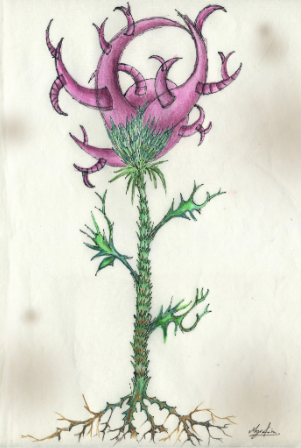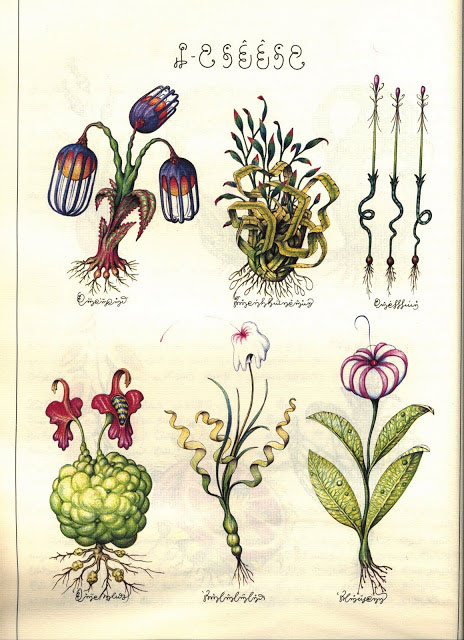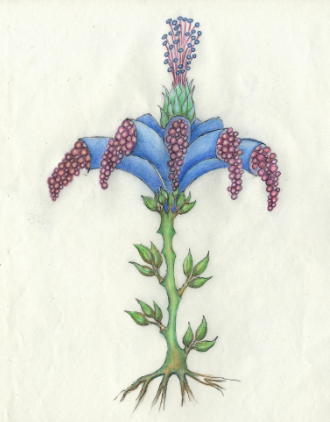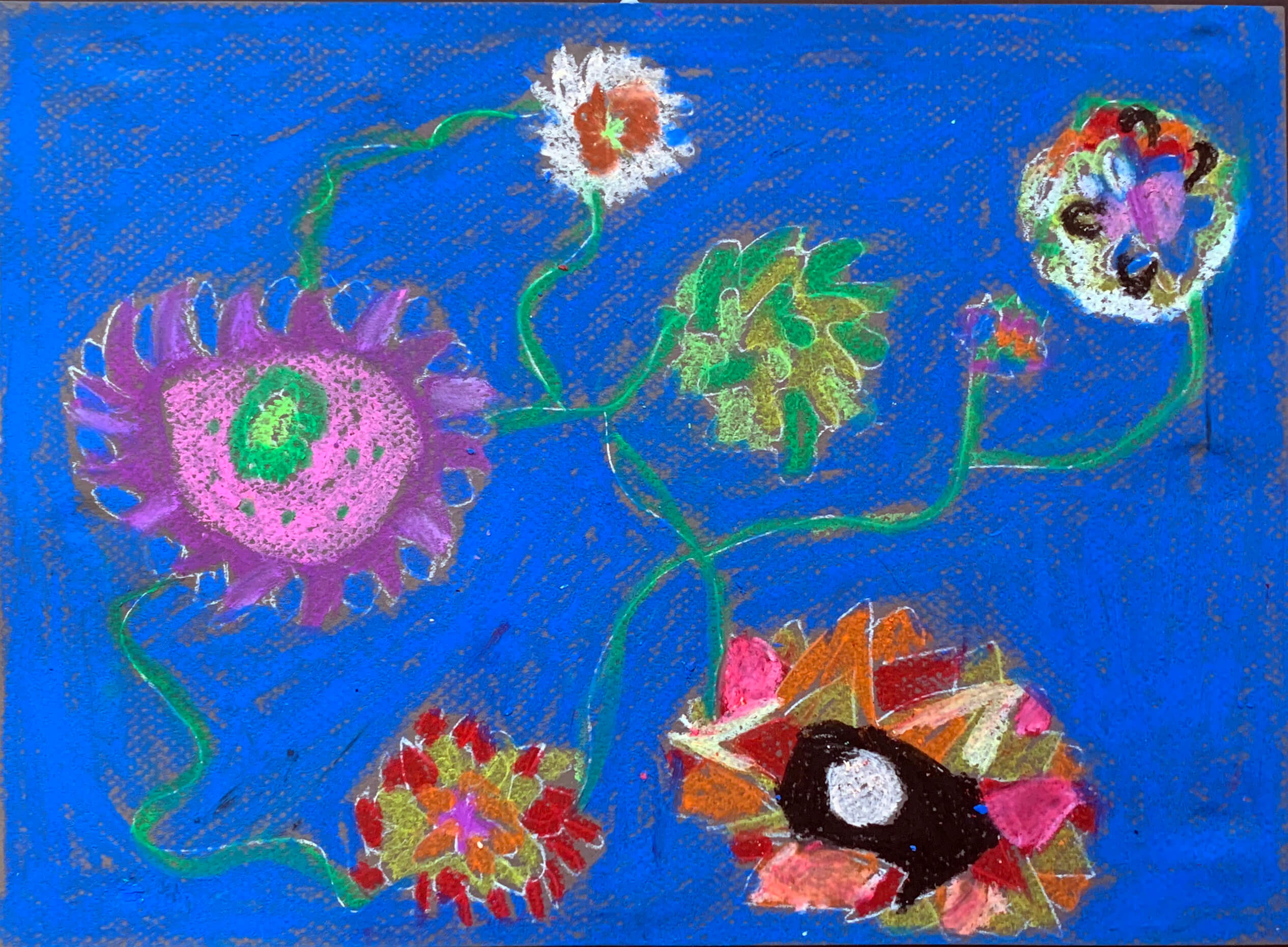Overview
Students will finish drawing their own imaginary plant, focusing on details and texture.
Materials and Tools
- White charcoal pencils
- Oil pastels
- Drawings from previous lesson
Activities
Step 1: Introduction
Hello artists! In the last lesson, we drew the large shapes of our imaginary plants. Did you combine or exaggerate any of the features of plants from around the world in your plant?
Today, we are going to finish our drawings by adding details and texture.
Step 2: Imagining Details and Texture
Let’s explore ideas for the details and textures of your imaginary plant!

- What distinctive features does your plant have? Will you repeat or exaggerate any of them?
- What kind of stems, roots, seeds or leaves does it have? How many?
- Does it have fruit or flowers?
- How will your plant feel if you touch it?
Step 3: Drawing your Imaginary Plant
Consider these prompts as you begin to draw your plant:
- What kinds of lines or shapes will you use to draw the details of your plant
- What kind of edges will these shapes have?
- How will you draw the visual texture that shows how your plant feels when you touch it?
Think about the colors you will use for each detail and texture as you work.
Step 4: Reflection Questions for Discussion
Questions for Individual Artists
- What details did you add to your plant?
- What visual textures did you create? How did you draw these?
Questions for Whole Group
- What details do you notice in this drawing?
- How do you imagine this drawing might feel if you touched it?
- How did the artist create this visual texture?
Vocabulary
Details
Visual texture
Resources



Resource: The Garden of Fantasy Flora: 80 Plants from Fiction: https://www.avasflowers.net/infographic-garden-of-fantasy-flora
Adaptations
For Multilingual Learners
Have students interview each other about their imaginary plant when finished.
Imaginary Plant Sculpture
Create an imaginary plant sculpture using recycled materials. This lesson plan from Dick Blick suggests materials and ideas: https://assets.ctfassets.net/f1fikihmjtrp/4w1ptz9PnF48SZdE3lXsHP/759298225406abc51938764b01c0e8f7/Imagined_Plants.pdf

